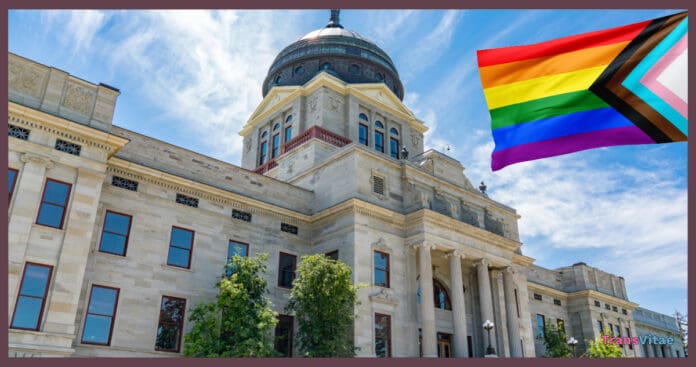In a rare bipartisan decision, Montana lawmakers voted Tuesday to reject legislation that would have criminalized adults—including parents and medical professionals—who assist minors under 16 in accessing gender-affirming medical care.
Senate Bill 164, which passed the Senate earlier this session, failed in the House with a 41-57 vote, marking a significant moment in the state’s ongoing legislative battle over transgender rights. The bill sought to categorize support for gender-affirming procedures such as hormone therapy and puberty blockers as a form of felony child endangerment.
The proposal was met with swift criticism from medical professionals, LGBTQ+ advocates, and several lawmakers who warned of its far-reaching implications. Among them was Rep. SJ Howell, D-Missoula—one of Montana’s two openly transgender lawmakers—who spoke powerfully against the bill during Tuesday’s brief floor debate.
“This bill would turn loving parents and compassionate doctors into criminals for doing what’s best for a child’s health,” Howell said. “These decisions are already difficult and deeply personal. Criminalizing them puts lives at risk.”
Howell shared the story of a constituent whose young daughter, born with XY chromosomes and undergoing estrogen treatment for a rare genetic condition, would have been directly impacted by SB 164. The family’s Montana-based doctor advised that the proposed law would force them to travel out of state—at considerable financial and emotional cost—to continue necessary care.
“How is it justice to tell this father he has to break the law to support his daughter’s health?” Howell asked lawmakers. “This is not protecting children. It’s punishing families.”
Supporters of the bill, such as Rep. Braxton Mitchell, R-Columbia Falls, framed it as a protective measure. “We have a duty to support children and shield them from experimental procedures they may later regret,” he said, echoing language used in similar bills nationwide.
But some Republicans broke ranks, citing the bill’s broad language and potential to criminalize parents and hinder physicians from addressing complex medical needs.
“I don’t support gender transitions for minors,” said Rep. Brad Barker, R-Red Lodge, “but I can’t support this bill either. It overreaches and puts families and doctors in an impossible position.”
The vote is the second time this session that a GOP-backed bill affecting transgender minors has failed in the Montana House. A separate bill targeting drag performances was also voted down, highlighting growing concern among lawmakers about overregulation of gender expression and personal healthcare decisions.
However, several bills imposing strict gender-based segregation in public facilities—including bathrooms and locker rooms—were signed into law in March. One such law is already facing legal challenges and has been temporarily blocked by a court.
Two additional bills that would make it easier to sue medical providers over gender-affirming care remain under legislative review. One of them, House Bill 682, was recently amended to shorten the statute of limitations from 25 years to four, though that change was reversed in the Senate.
The Bottom Line
In a statement following the vote, Howell expressed cautious optimism: “This Legislature has made clear we won’t pass bills that attack trans Montanans just because they cross our desks.”
For many families, transgender youth, and their allies, Tuesday’s decision is a moment of reprieve in an otherwise relentless legislative session. But advocates warn that the fight for transgender rights in Montana is far from over.


